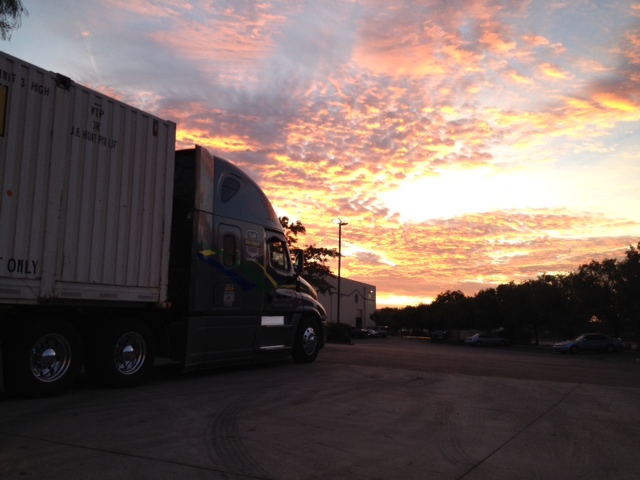 There are a lot of things that go into calculating a CSA score. Experts talk about possible bettering of scores though more thorough training, updating equipment, and running EOBR’s to help aid in better tracking HOS. One thing that is often not heard is if there is any relationship between the average driver wages of a company and their CSA rating? I happen to think through my own daily observations, that there is some correlation between the two. Of course most researchers would say from the outside looking in, that drivers all earn a decent wage, as the average (mean) annual driver wage in 2012 for general freight trucking was $41,680 according to the U.S. Bureau of Labor Statistics (BLS.gov). What is not taken into consideration by most, are the long hours needed just to make the average wage as a company driver.
There are a lot of things that go into calculating a CSA score. Experts talk about possible bettering of scores though more thorough training, updating equipment, and running EOBR’s to help aid in better tracking HOS. One thing that is often not heard is if there is any relationship between the average driver wages of a company and their CSA rating? I happen to think through my own daily observations, that there is some correlation between the two. Of course most researchers would say from the outside looking in, that drivers all earn a decent wage, as the average (mean) annual driver wage in 2012 for general freight trucking was $41,680 according to the U.S. Bureau of Labor Statistics (BLS.gov). What is not taken into consideration by most, are the long hours needed just to make the average wage as a company driver.
 Given that most companies become larger by making a profit after all expenses are paid (including driver wages) and reinvesting the money back into the company, it is in their best interest to increase that profit margin in order to grow bigger faster. It creates an astonishing balancing act on a fine line of paying the driver enough to live, but at the same time allowing for profit and growth potential. Although there are a lot of carriers that find it easy enough to balance this out, with the ever-growing competition in the realm of freight rates, it can often end with the drivers getting the short end of things.
Given that most companies become larger by making a profit after all expenses are paid (including driver wages) and reinvesting the money back into the company, it is in their best interest to increase that profit margin in order to grow bigger faster. It creates an astonishing balancing act on a fine line of paying the driver enough to live, but at the same time allowing for profit and growth potential. Although there are a lot of carriers that find it easy enough to balance this out, with the ever-growing competition in the realm of freight rates, it can often end with the drivers getting the short end of things.
 The area of the industry that I am involved in, container hauling, is notorious for having this scenario play out. The reputation that container haulers are always running around like chickens with their heads chopped off, is unfortunately well known throughout the industry. It is here in that market that I myself witness the dramatic effect of wages on safety. The main reason that running ragged has become synonymous with container hauling and many local dry-van operations here in Southern California is because the drivers are paid only a fixed percentage of the load and no hourly or mileage wage on top of that. This makes for a dangerous situation if the percentage is too low, as it creates a need to rush around everywhere in order to get in as many loads as the driver can before their HOS run out for the day.
The area of the industry that I am involved in, container hauling, is notorious for having this scenario play out. The reputation that container haulers are always running around like chickens with their heads chopped off, is unfortunately well known throughout the industry. It is here in that market that I myself witness the dramatic effect of wages on safety. The main reason that running ragged has become synonymous with container hauling and many local dry-van operations here in Southern California is because the drivers are paid only a fixed percentage of the load and no hourly or mileage wage on top of that. This makes for a dangerous situation if the percentage is too low, as it creates a need to rush around everywhere in order to get in as many loads as the driver can before their HOS run out for the day.
I have seen some outfits here in Southern California that make it so that a driver, owner-operator or company, cannot make a decent wages unless they are cramming eight loads into a fourteen-hour day…every day. To top it off, I see many drivers that have to, not choose to, work six days a week just to make ends meet. There is one easy solution to this unsafe running around…PAY MORE! Some companies shutter at these words, but fail to realize the impact it may have on their overall safety rating. If drivers don’t have to rush around franticly, they can then take the time to slow down and re-think the processes they go through day-in and day-out. I was taught by a very wise man when I first entered this industry, “When you hurry, that’s when things get screwed up!” Perhaps the growth and profit of a company could be slowed a little bit and driver wages increased, if only the “bean counters” behind the scenes could realize the impact on safety it could have. This relationship between safety and wages was a major factor of my consideration of getting into hauling containers. I was not going to run around franticly trying to make ends meet as a contracted owner-operator and would not have made the switch from dry van unless the right conditions were all there for how I like to run my business. I was happy to have found a company that compensates their owner operators in such a way that money can be made while still being safe. Not only am I compensated by the load, but by the mile as well, with mandatory detention time after 90 minutes of arrival at a good rate, regardless of whether the customer pays or not. Hopefully some of the other companies out there paying peanuts will eventually realize the impact low wages can have on their overall operational safety!